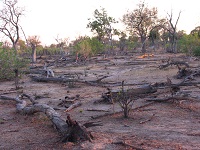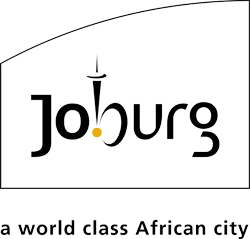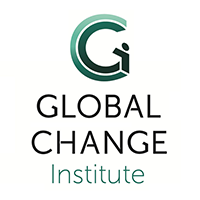Our Programmes
There are a variety of programmes at the Global Change Institute:
There are a variety of programmes at the Global Change Institute:
In collaboration with other universities part of the ACCAI network, GCI aims to co-investigate a suite of global environmental change transition and transformation challenges (of which food systems is one). The other members of the ACCAI Partnership are Mekelle University (Ethiopia), University of Dar-es-Salaam (Tanzania), University of Ghana and the University of Stellenbosch.
ACCAI I: Building the Next Generation Scientists and Resilient Societies
Funded by the Open Society Foundations (OSF), the vision of the ACCAI I project is to build Africa’s own capacity to face the challenges of climate change. The mission is to develop creative and flexible thinkers/decision makers who can effectively navigate complex and rapidly changing situations and systems.
The strategy to realise the vision and mission of ACCAI I is based on two components: an internally-focused curriculum strand informed and building on existing efforts; and an externally-sourced set of inputs that enriches both the internal curriculum, and informs an externally driven arm of curriculum development (e.g. short course development, external products and outputs).
ACCAI II: Co-producing knowledge on food systems for development in Africa
Food security and food sovereignty confront many people, particularly those located on the margins of urban and rural areas and/or class. In an effort to confront these challenges, the ACCAI II project, funded by the Open Society Foundations (OSF), focuses on establishing and operating a strong network of African researchers co-producing knowledge on food systems in the face of climate change in Africa. It also aims to enhance food systems and climate change research capability within the ACCAI Network institutions.
This 4-year international project started in June 2015 and is funded by the Belmont Forum, a consortium of funding agencies that includes the South African National Research Foundation. The project aims to tackle the challenge of feeding a growing population now and in the future on limited land resources.
The project will explore feedbacks and interactions between land use change and food security dynamics using high resolution, spatially disaggregated global models, databases of soils, land-use, crops and livestock and a range of scenarios related to food production and demand side measures.
The research team consists of scientists from 11 institutions worldwide. GCI is responsible for:
Acknowledging the current and future landscape will be adversely impacted by effects of global change, the GCI aims to develop future leaders in the global change sphere who will have the capacity to predict future scenarios and provide sustainable solutions. This project, funded by the Carnegie Corporation, focuses on the following:
 This is a three year South African National Research Foundation funded project which commenced in January 2016. The grant-holder is Prof Bob Scholes of GCI who also the co-Chair of the Global Land Degradation and Restoration Assessment of the Intergovernmental Platform on Biodiversity and Ecosystem Services.
This is a three year South African National Research Foundation funded project which commenced in January 2016. The grant-holder is Prof Bob Scholes of GCI who also the co-Chair of the Global Land Degradation and Restoration Assessment of the Intergovernmental Platform on Biodiversity and Ecosystem Services.
The aim of the project is to put the detection, diagnosis and quantification of land degradation onto a more scientifically sound basis in Southern Africa, using a new conceptualisation of degradation based on persistent depression of ecosystem services, ecological insights into the functioning of semi-arid landscapes and state-of the art remote sensing approaches; specifically the 15-year high resolution MISR record computed at GCI.
The Pan African Research College on Sustainable Cities has been established at the University of the Witwatersrand, Johannesburg. The founding of the college was made possible by the German-based foundation Robert Bosch Stiftung GmbH for a five-year grant. The College is made up of senior researchers from five partner universities, namely the University of Ghana, University of Nairobi, the United Nations University Institute for Natural Resources (Accra, Ghana), the University of Cape Town and the University of the Witwatersrand. The aim of the college is to bring together researchers from different disciplines related to sustainable cities. These will include experts from fields like meteorology, town and city planning, environmental sciences, social sciences, and architecture. The funding will also enable the support of seven PhD students as well as five post-doctoral fellows. This funding also covers leadership and management training, annual network meetings and conference attendances.
Fellow Profiles, click here.
GCI is a research partner for the Resilience in the Limpopo Basin Programme (RESILIM) Olifants (O) programme implemented by the Association for Water and Rural Development (AWARD). This project is funded by USAID to support a more resilient Olifants Catchment in South Africa and Mozambique. The programme focuses on reducing the vulnerability of people and ecosystems through improved transboundary governance and management of natural resources. It’s core objectives are:
GCI forms part of the project research team in collaboration with Rhodes University on an International Social Science Council (ISSC) grant proposal entitled 'Transgressive Social Learning for Social-Ecological Sustainability in Times of Change'.
The project focuses on changes in human activities and social systems which are a critical component to mitigating and adapting climate change. The goal of creating a sustainable future is reliant on people and social systems adapting their activities, however the challenge that arises is that there is currently limited knowledge pertaining to the type of learning required to create change, how such learning emerges and how it can be scaled-up to promote positive transformation.
The grant funds assist with the following:
 GCI and City Of Johannesburg (CoJ) Adaptation Plan: Building a Resilient Johannesburg to Climate Challenges
GCI and City Of Johannesburg (CoJ) Adaptation Plan: Building a Resilient Johannesburg to Climate Challenges
The partnership between GCI and the City of Johannesburg (CoJ) was brokered by Professor Coleen Vogel. The GCI have entered into an agreement with the City to work together on developing long-term and short-term plans to develop a resilient city in the face of climate variability and climate change.
The GCI/CoJ project will undertake a transdisciplinary research approach which involves in-depth engagement with a variety of actors.

